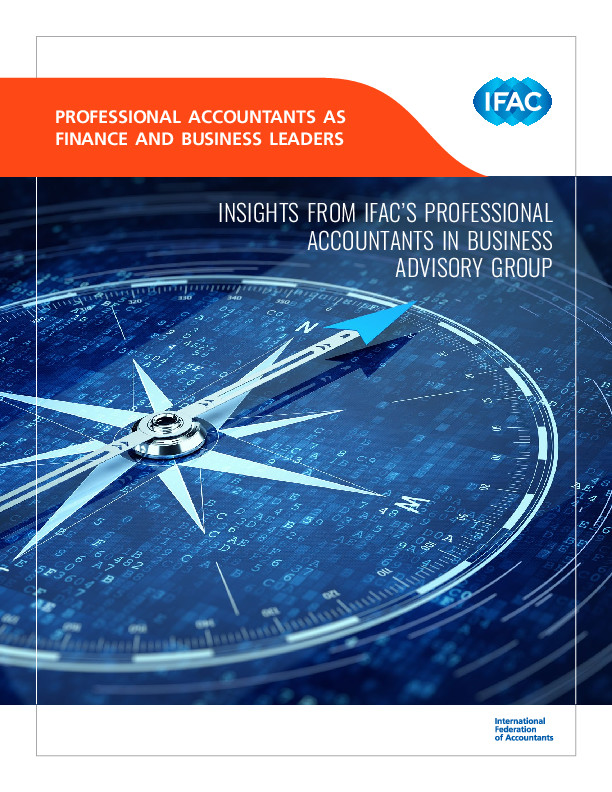The International Federation of Accountants (IFAC) has selected Mrs. Olivia Kirtley of the United States and Mr. Edward Olowo-Okere of Nigeria as the 2022 recipients of the IFAC Global Leadership Award, recognizing their contributions to the advancement of the global accountancy profession and capital markets.
Mrs. Olivia Kirtley
Mrs. Kirtley is an internationally known expert in accounting, risk management, and governance. She served as the first female Chair of the American Institute of CPAs (AICPA) and later became Chair of the AICPA Board of Examiners administering the U.S. CPA Exam.
While serving as the first female Deputy President and later President of IFAC, Mrs. Kirtley worked on important reforms to IFAC’s constitution and support for Professional Accountants in Industry. As President, she focused on promoting diversity within the profession, capacity building, strong governance structures and public sector financial management.
Since leaving IFAC, Mrs. Kirtley has continued breaking the glass ceiling for women with ongoing service on corporate boards, including current service as Director of Papa John’s International, Inc., a publicly traded company listed on the NASDAQ; Lead Independent Director of U.S. Bancorp, the parent company of US Bank, a NYSE and Fortune 500 company; and Director and Audit Committee Chair of Bexion Pharmaceuticals.
Mrs. Kirtley is a member of the Accounting Hall of Fame and an AICPA Gold Medal winner, which is the highest honor granted by the AICPA. In addition, in 2020, she was named the first recipient of the American Woman's Society of CPAs (AWSCPA) Lifetime Achievement Award, which recognizes women who have demonstrated leadership and a strong record of accomplishment in furthering the advancement of women in the accounting profession.
“It is a privilege to present this award to Olivia, IFAC's first female president," said President Alan Johnson. "Through her leadership of the AICPA and IFAC, and work on many corporate boards, Olivia has used her expertise in accounting, risk management, and governance to lead the development of the profession across the world, including as a role model for aspiring female accountants, and has continually enhanced the reputation and trust of our profession. Her international reach and steadfast commitment to the public interest have been of immeasurable service to the profession."
Mr. Edward Olowo-Okere
Mr. Olowo-Okere has over three decades of experience working on development issues around the world. He is Senior Adviser in the Equitable Growth, Finance, and Institutions (EFI) Vice Presidency at the World Bank.
Previously, Mr. Olowo-Okere was the Global Director for the Governance Global Practice where he led the Practice to support client countries in building accountable, transparent, and inclusive institutions to facilitate private-sector growth and build trust in governments. He joined the World Bank in 1998 and has held various positions in operations, including Director of Governance overseeing Africa, MENA and ECA regions, and Director of the Core Operational Services Department in the Africa region. Before joining the Bank, he worked in Nigeria, Britain, and New Zealand.
Mr. Olowo-Okere was instrumental in establishing Pan African Federation of Accountants, playing a crucial role in facilitating engagements amongst the key stakeholders that culminated in the organization’s launch in Senegal in May 2011. Specifically, he facilitated several conversations, provided guidance on drafting the PAFA constitution, and presided over the launch event. Over the years, Ed has actively supported PAFA, especially by speaking at various forums, providing advisory input to the Board and leadership, and, more recently, serving as a 10-year PAFA advisory committee member. PAFA currently has a membership of 56 Professional Accountancy Organizations from 45 countries. Amongst other contributions, Ed served on the IFAC’s Developing Nations Committee (DNC) and a Group that transformed DNC to Professional Accountancy Organization Development Committee (PAODC).
In 2021, Mr. Olowo-Okere was recognized by the World Economic Forum Global Future Council on Agile Governance as one of the world’s 50 most influential people driving agile initiatives to ensure governments can effectively navigate disruptions like COVID-19 and the climate crisis.
"I am honored to present this award to Ed, a passionate global leader with over thirty years of significant global contributions to the accountancy profession and the public sector," said President Alan Johnson. "Ed was instrumental in the development of the Pan African Federation of Accountants (PAFA) in 2011 and has played a leading role in developing a strong accountancy profession across the world."
Established in 2017 by the IFAC Board, the IFAC Global Leadership Award in Honor of Robert Sempier recognizes individuals who make outstanding contributions to the global accountancy profession. The award honors the contributions of Robert Sempier, IFAC’s first executive director who greatly contributed to the development of the profession worldwide.
The Global Leadership Award was presented during IFAC’s Council meeting, held on November 15, 2022.
About IFAC
IFAC is the global organization for the accountancy profession dedicated to serving the public interest by strengthening the profession and contributing to the development of strong international economies. IFAC is comprised of 180 members and associates in 135 jurisdictions, representing more than 3 million accountants in public practice, education, government service, industry, and commerce.

